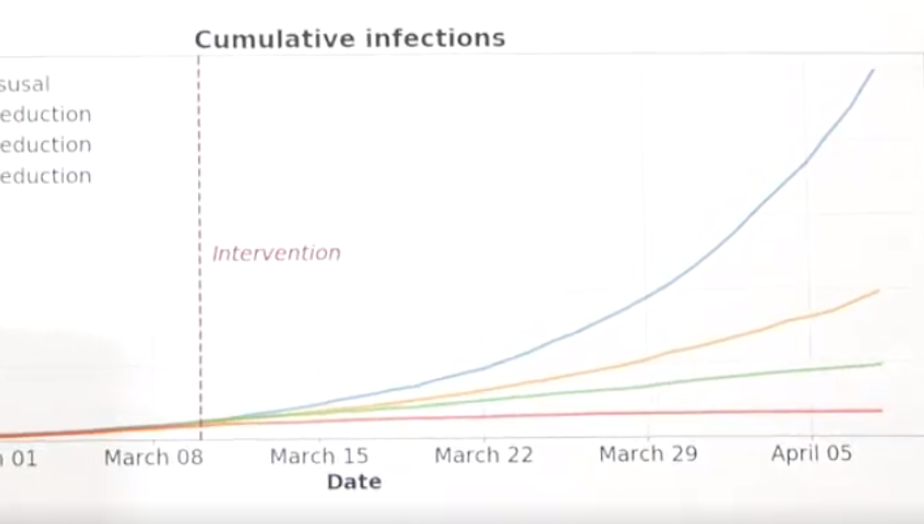How you can 'flatten the curve' of the coronavirus outbreak in Seattle
You may have seen graphs circulating online about social measures to mitigate the coronavirus. They're often accompanied by the hash tag #FlattenTheCurve.
The graphs represent the thinking behind why schools and events are being canceled across the Puget Sound region.
Two graphs with bumps. One is tall, skinny, and spiky. The second is short, wide, and smooth.
The first bump represents a potential spike in infections from COVID-19 that would overwhelm the region’s healthcare system. The other, smaller bump represents what state and local officials are trying to do: keep new infections to a minimum.
To understand how the pieces fit together, I spoke to Dr. Peter Rabinowitz, director of the UW MetaCenter for Pandemic Disease Preparedness.
We’re both speaking over cellphones while engaging in one way to slow the virus: working from home.
An infectious disease like this virus spreads depending on the intensity, frequency, and duration of contact, Rabinowitz said.
Sponsored
“The longer people spend next to each other, the more contact you have in terms of shaking hands, sneezing on each other, contaminating the surfaces that someone else could get into contact with, all those things add up to an overall risk of infection,” he said.
You can slow down the virus by giving it less opportunity to jump from one infected person to many other people, Rabinowitz said.
That’s the idea behind all the actions being taken now, from canceled schools, concerts, and conferences to the constant reminders to wash your hands.
They are layers of different interventions stacked on top of each other, as the Centers for Disease Control and Prevention laid out in a 2017 article that featured the basis for the original “flatten the curve” graph.
“Even healthy people who might not end up with a very serious infection could be infecting other people who will develop a severe infection,” Rabinowitz said.
Sponsored
We need a paradigm shift: “We have to think about our responsibility to the community as well as just ourselves,” he said. Or, as Gov. Jay Inslee put it Wednesday: “You might be killing your granddad if you don’t do it. And I’m serious about this.”

On Wednesday, Inslee announced the ban on large gatherings with a large poster board of this graph from local researchers, including Trevor Bedford, a computational biologist at Fred Hutchinson Cancer Research Center.
"We can act," Inslee said, "And if we do act we can flatten the rate of this epidemic."




